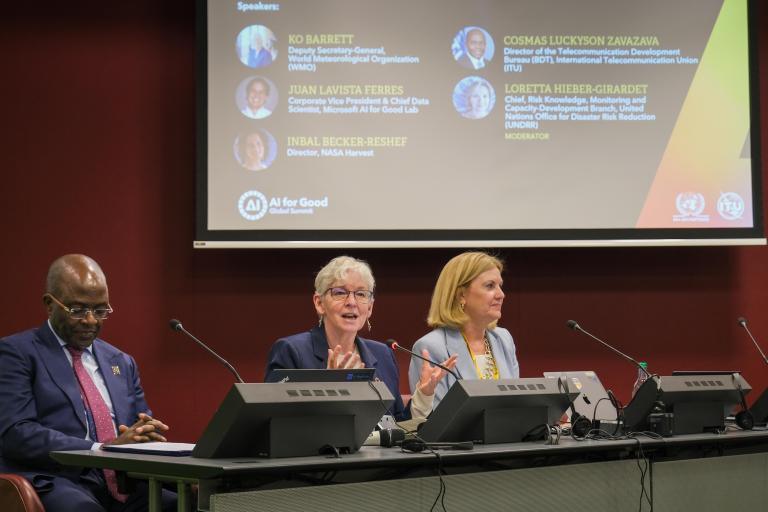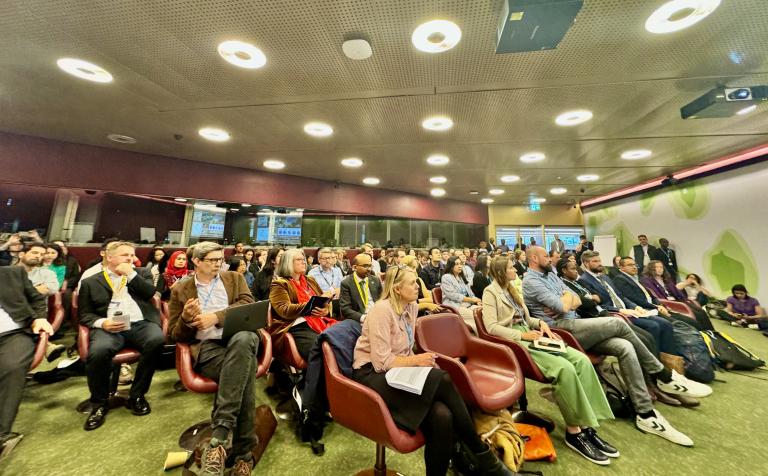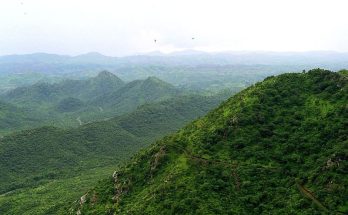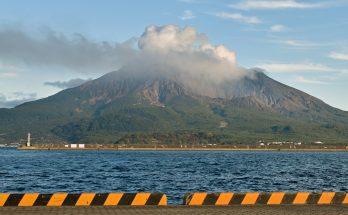The annual AI For Good Global Summit in Geneva was filled with anticipation and excitement. Spanning multiple floors of exhibitions, stages, and workshops, the summit featured two critical days focused on AI for future climate prediction and early warning systems.
“WMO has long been at the forefront of innovation. We coordinate the international exchange of data that underpins modern day forecasting capabilities. Several times a day, nations across the globe and many other partners measure weather conditions, using WMO standards, and share this data internationally with centres that compute global weather forecasts. This data is then disseminated back to the countries that provided the inputs within hours,” said Ko Barrett, WMO Deputy Secretary-General.

WMO
The Geneva International Conference Center buzzed with the vibrant energy of artificial intelligence thought leaders, converging on the final day to explore AI’s transformative potential for early warning systems.
A workshop held in a small room on the third floor was filled to capacity, with attendees peeking in through the door. This session covered a range of management aspects, from food security to anticipatory action for droughts and heat waves, and examined the complexities of harnessing the power of AI to better understand the complexity of earth system science. Abstracts and presentations are available on the event’s official website.

A standout event was the Early Warnings for All initiative, held in the afternoon in a larger room that still struggled to accommodate the interested audience. This highlighted the growing momentum of this global campaign and the strong desire to leverage AI to ensure everyone on Earth is protected by an early warning system.

Real-world applications of AI in national and global early warning systems were showcased, demonstrating the campaign’s progress. The MedEWSa project is an example of how WMO is collaborating with research institutions, the private sector, and international bodies to refine how early warning systems can benefit from AI to support quicker, science based, and more effective first responder actions when faced with extreme weather events and natural hazards.
The WMO acknowledges the challenges ahead but is committed to integrating AI technology into its technical operations and governance. One of the key focus areas is the integration of AI into the Multi-Hazard Early Warning System (MHEWS) framework. By leveraging AI, WMO aims to enhance predictive analytics and automate data processing, thereby improving the accuracy and timeliness of early warnings.





